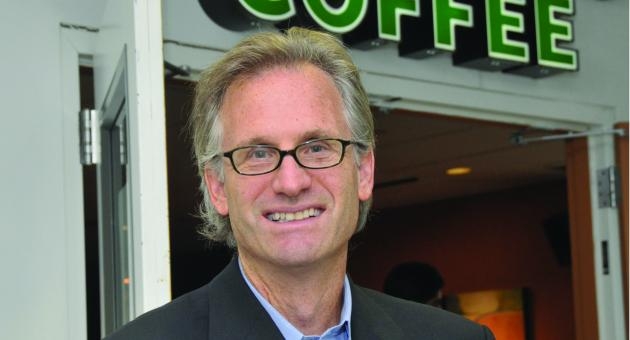Starbucks offers its customers 'a pat on the back'

A new customer-financed economic stimulus program announced recently by Starbucks is the latest of several foreign and domestic social fixes undertaken by the coffee giant's chief executive, Howard Schultz.
But like Starbucks' other corporate policies, the program's biggest impact may be in making its customers feel like they are making a difference, writes Temple Professor Bryant Simon in an opinion piece published last week in the Washington Post.
"This is only the latest in a long line of light-blueish foreign and domestic policies rolled out by President Schultz... aimed at making the United States, and the world, a better place for sipping lattes," wrote Simon.
"Welcome to Starbucks USA!" wrote Simon, referring to the company's propensity for taking a government-like role on issues such as the economy, foreign policy, the environment and healthcare.
According to Simon, from Schultz’s earliest days Starbucks' healthcare plan made it stand out. The company also made public pledges to contribute positively to the environment and worked to create economic stability and a better life for coffee growers in Rwanda and Columbia.
"A few pennies more for a pound of Rwandan coffee will help some growers there, but it won’t get this country back on track or make up for decades of imperial plunder. And those Starbucks coffee cups made out of recycled fibers can’t stop climate change," wrote Simon.
Now, beginning Nov. 1, Starbucks will collect donations of $5 or more from customers to build its Create Jobs for USA program. With the money, the company and its nonprofit partner will provide loans to small businesses and community groups around the country.
But, wrote Simon, $5 donations can’t make up the 7.9 million jobs lost since 2008.
"What Starbucks USA's policies do offer us is a chance to feel better, to see ourselves not as part of the problem, but as part of the solution. We are willing to pay the latte tax for this pat on the back," he wrote.
Simon, professor of history and American studies in Temple's College of Liberal Arts, is the author of Everything But the Coffee: Learning about America from Starbucks.